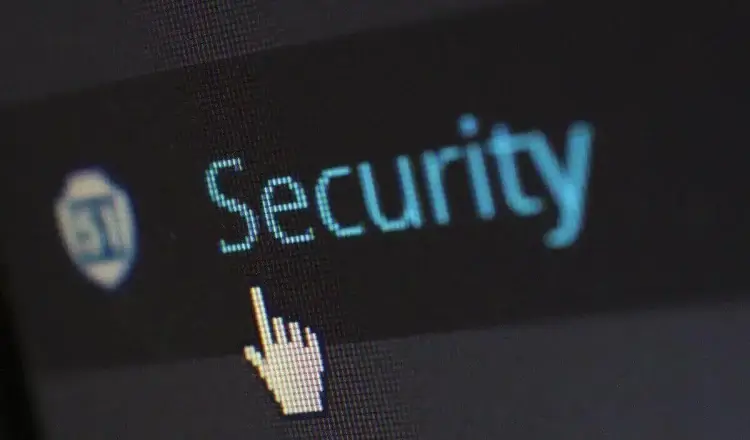Nowadays, digital connectivity and remote work are at the forefront. Technology has made it possible to accomplish their work from different places. However, as more people reap the benefits of technology, they must also know about the importance of cybersecurity. With personal and professional spaces slowly blending, remote workers navigate a complex landscape of cyber threats and vulnerabilities.
Table of Contents
Staying Safe and Secure in the Digital World
This article delves into the critical significance of cybersecurity for remote workers. We also offer valuable insights and practical tips to ensure a safe and secure digital environment.
Remote Work and Its Cybersecurity Implications
The global shift to remote work, accelerated by unprecedented events, has changed how we work and interact with technology. The digital realm becomes their primary workspace, with remote workers embracing the flexibility and convenience of working from home or other locations.
However, this shift also exposes individuals and organizations to various cybersecurity challenges. Some of the most common cybersecurity threats include the following:
Network Vulnerabilities
Remote workers often rely on home networks that may lack robust security measures in office environments. Home systems can be more vulnerable to cyber-attacks since they aren’t as protected as office networks. Unsecured Wi-Fi networks, outdated routers, and inadequate firewalls can expose sensitive data to cybercriminals.
Phishing Attacks
Cybercriminals take advantage of the dependence on digital communication channels by conducting sophisticated phishing campaigns. Remote workers risk falling victim to deceptive emails, links, and attachments that can lead to data breaches or malware infections. This is especially true if they don’t know how to spot a phishing attack.
Device Security
Using personal devices for work blurs the lines between personal and professional data. Inadequate device security, including weak passwords and outdated software, can pave the way for unauthorized access and data leakage. If remote workers don’t properly secure their devices, it can mean serious trouble for their organization.
Data Privacy Concerns
Remote workers handle sensitive information, making data privacy a paramount concern. The mishandling of data or improper storage can result in regulatory violations and reputational damage. A simple mistake such as leaving confidential information in plain sight can make a successful business a failure.
The Pillars of Remote Work Cybersecurity
To navigate these challenges effectively, remote workers must adopt a proactive approach to cybersecurity. There are fundamental pillars in remote work cybersecurity.
By focusing on these pillars, individuals can enhance their digital resilience. This will help protect their personal and professional data. These pillars include:
Education and Awareness
Knowledge is the first line of defense against cyber threats. Remote workers should invest time and effort in educating themselves about common cyber risks. These include phishing tactics, password security, a description of your security system, and data privacy best practices.
Secure Network Practices
Prioritize the security of your home network. Use strong, unique passwords for your Wi-Fi and router, and enable WPA3 encryption. Consider setting up a guest network for non-work devices as well. This will prevent your data from being exposed to other users.
Multi-Factor Authentication (MFA)
Implement MFA whenever possible. Although strong passwords protect your data, they’re usually not enough. This additional layer of security makes sure that even if passwords are compromised, unauthorized access remains unlikely.
Regular Software Updates
Keep all devices and applications up to date. Software updates often include censorious security patches that protect against known vulnerabilities. Remember to regularly check whether your device or application has an update so you can protect it.
Endpoint Protection
Install reputable anti-malware and antivirus software on your devices. Daily scans can help detect and remove potential threats. You may also want to leverage Andela Data & Analytic solutions. For instance, malicious ransomware can lock your device and steal your data. Endpoint protection will help protect you against these kinds of cyber-attacks.
Data Encryption
Utilize encryption tools to safeguard sensitive data during transmission and storage. Encryption is when data is converted into an unreadable encoded format. This ensures that even if data is intercepted, it remains unreadable without the decryption key.
Practical Tips for a Secure Remote Work Experience
In addition to the foundational pillars of cybersecurity, adopting these practical tips can further enhance your remote work security posture:
Use Strong, Unique Passwords
Avoid using easily guessable passwords. Instead, create complex passwords or consider using a reputable password manager. You should also change your passwords regularly so that if someone does gain access, they can’t stay in for too long.
Regular Backups
Regularly back up your data to a secure cloud service or an external hard drive. This safeguards your work in case of a ransomware attack or hardware failure. Regular backups mean you don’t have to start from scratch in the event of a cyberattack.
Work-Only Devices
Whenever possible, use dedicated devices for work-related tasks. This minimizes the risk of mixing personal and professional data. It also prevents any malicious software on your devices from accessing work data.
Secure Virtual Private Network (VPN)
Employ a reputable VPN to encrypt your internet connection and ensure your online activities remain private and secure. A VPN is especially important if you’re using unsecured public Wi-Fi. It will help prevent anyone from snooping on your data.
Stay Skeptical
Exercise caution when receiving unrequested emails, especially those requesting sensitive information or urging immediate action. Only open emails from people you trust. This minimizes the risk of falling victim to phishing scams.
Conclusion
As remote work becomes an integral part of our professional lives, cybersecurity emerges as a critical enabler of productivity and data protection. By understanding the significance of cybersecurity, remote workers can confidently navigate the digital landscape. In the long run, this ensures the safety of their personal information and sensitive corporate data.




